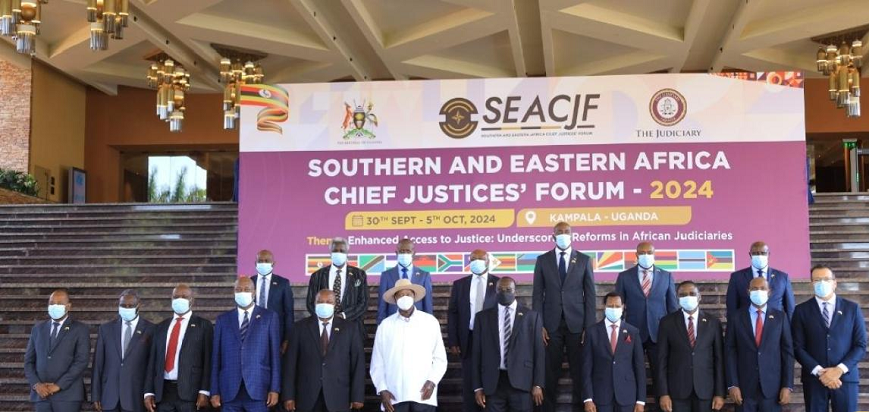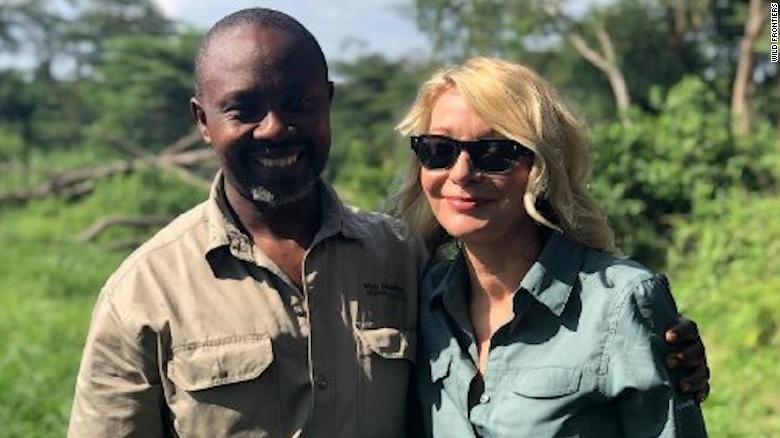President Museveni together with Chief Justices from the Southern and Eastern Africa Chief Justices Forum in Kampala.
The government is in the process of enacting a law to stem exploitative money lending practices in Uganda, president Yoweri Kaguta Museveni has revealed.
Speaking at the 8th Annual Conference of the Southern and Eastern Africa Chief Justices Forum, Museveni condemned the high interest rates imposed by money lenders, describing them as exploitative and a threat to Uganda’s economic stability if not properly regulated.
Museveni cited an example of a house in Munyonyo, a posh area of Kampala, being valued at just one million Shillings, questioning the legitimacy of such transactions.
He emphasized that the government would make laws to regulate these practices, noting that money lenders often exploit ordinary citizens despite inflation being only two percent.
Museveni particularly criticized hidden contracts, where lending agreements are disguised as purchase contracts. He argued that the current laws, which allow money lending to operate under contract law, are inadequate.
To address this issue, Museveni announced plans to establish specific regulations governing money lending practices, aiming to protect Ugandans from predatory lending.
Beyond economic exploitation, Museveni linked Uganda’s growth to the effectiveness of its justice system. He noted that when the economy is thriving, the state can better support the judiciary and improve access to justice.
Prosperity, he argued, leads to better livelihoods, housing, healthcare, nutrition, and security.
Museveni also expressed concern about insecurity in various African countries, which he attributed to political instability and economic underperformance that hampers state support for military forces.
Challenges Facing the Judiciary
Chief Justice Alfonse Owiny-Dollo acknowledged the challenges faced by the judiciary, including delayed hearings, inadequate infrastructure, gender biases, judicial interference, and case backlogs.
He emphasized that access to justice is a core value of the rule of law and a cornerstone of democracy and good governance.
Owiny-Dollo remains hopeful that the conference will provide strategies to improve justice access, highlighting initiatives such as hiring interpreters and improving facilities for people with disabilities.
Judicial Independence and Cooperation
Bheki Maphalala, Chief Justice of Eswatini and Chairperson of the Southern and Eastern Africa Chief Justices Forum (SEACJF), emphasized the need for judicial independence, the rule of law, and collaboration among member states.
He reiterated that the forum is committed to protecting the independence of judiciaries and promoting the rule of law and dignity for judges.
Bheki also lamented the continued exploitation of Africa’s resources by foreign entities, which he said has exacerbated poverty on the continent.
The conference, attended by 20 Chief Justices from 14 SEACJF member states, is being held under the theme: “Enhanced Access to Justice: Underscoring Reforms in African Judiciaries.”
-URN





